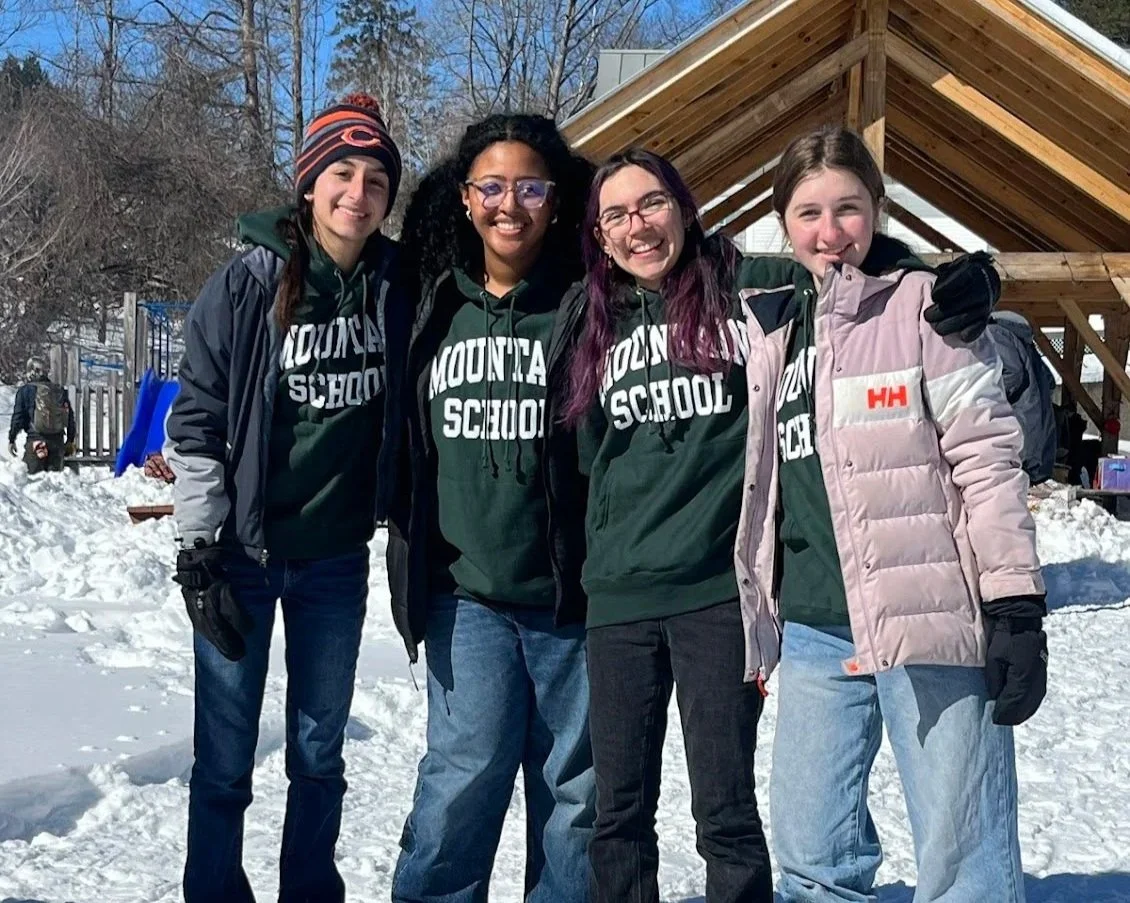
School Information
Purpose, Place & Community
Below you’ll discover who we are, our mission and history, our connection to the land, and how we approach belonging, equity, and inclusion in our community.
Mission & Vision:
Independent and Interdependent
The Mountain School’s Mission is to cultivate a diverse and interdependent community of scholars who learn to know a place and take care of it. Through collaborative learning and shared work, students emerge from their semester prepared to reach beyond the self and focus on the common good.
At the Mountain School, we see a world where students understand that they are part of nature, not apart from it. Where we understand our collective health and ability to thrive are indistinguishably linked to the health of our environment, both local and global. Where students gain the sense to explore, ask questions, take initiative, and face challenges with confidence, creativity, and resilience to make a positive impact.

Our History & Evolution
A Timeline of Growth and Transformation
The Mountain School’s story is one of vision, experimentation, and enduring connection to the land. From its roots as a small Vermont boarding school to its national reputation as a pioneering semester program, each chapter builds on the same foundation — education through place, community, and shared work.
Land & Place:
Acknowledgment, Campus, and Context
Campus & Ecology:
Our working campus spans 418 acres of forest, trails, gardens, pastures, and structures where students live, learn, work, and steward the land. We grow food, raise animals, harvest wood, and operate with ecological awareness, embedding place-based work into everyday life.
Land Acknowledgement:
The Mountain School acknowledges that the land on which we gather, also known as Vermont, is the traditional and unceded territory of the Abenaki People, land which has long served as a site of meeting and exchange among indigenous peoples for thousands of years, and is the home of the Western Abenaki People. We acknowledge the Abenaki community, their elders both past and present, as well as future generations, as the traditional stewards of the lands and waters on which we gather. We also acknowledge that the Mountain School, Vershire, Vermont, and the United States were founded upon exclusions and erasures of many Indigenous people, including those whose lands we are on now: the place the Abenaki Nation calls the Dawnland. This acknowledgement is only one small step in a broader project of reparation.
We are grateful to Carol McGranaghan, Chair, Vermont Commission on Native American Affairs, and Don Stevens, Chief of the Nulhegan Band of the Coosuk-Abenaki Nation, for offering us the language with which to make this land acknowledgement.

Community, Belonging & Accountability
We aim for every member of our community to feel welcome and at home, though we recognize that belonging is not equally accessible for all at the outset. We actively engage faculty, students, and alumni in reflecting on and improving practices of inclusion, reparative justice, and equity.
Discover more about how we cultivate and evolve the concept of belonging.
Culture of Shared Work & Learning
Independent & Interdependent
From day one, students commit to a life of mutual responsibility: sharing work and sharing learning. Through campus chores, farm duties, and coordinated labor, students test their limits, discover strengths, and build trust in community.
Trust & Collaboration
Our pedagogy emphasizes trust, restorative practices, and collective care. Students support one another, learn to repair harm, and grow resilience in a setting where accountability and belonging go hand in hand.

Accreditation & Memberships
The Mountain School is fully accredited by the New England Association of Schools and Colleges (NEASC) and is an active member of the National Association of Independent Schools (NAIS).
Through its affiliation with Milton Academy, The Mountain School is also a member of the Association of Independent Schools in New England (AISNE) and the National Association for College Admissions Counseling (NACAC).
These accreditations and memberships reflect our commitment to high academic standards, ethical school practices, and quality college-preparatory education for high school students seeking a semester-based experiential learning program.








